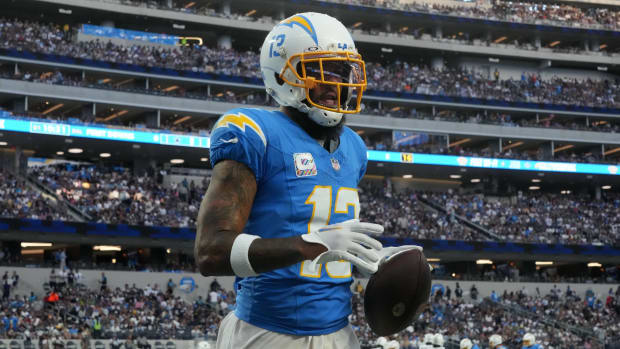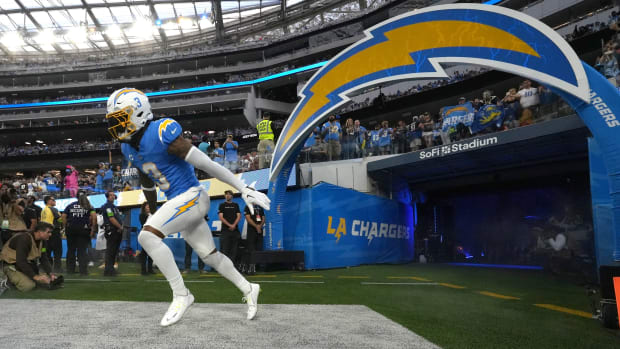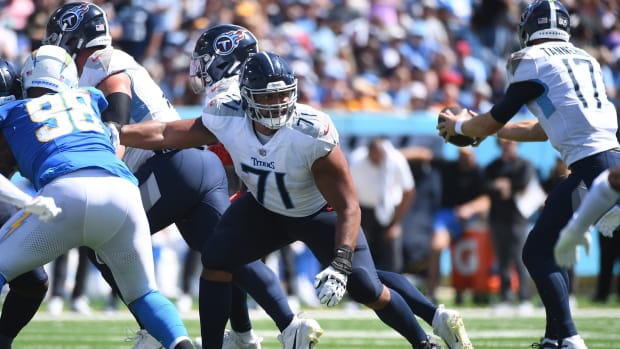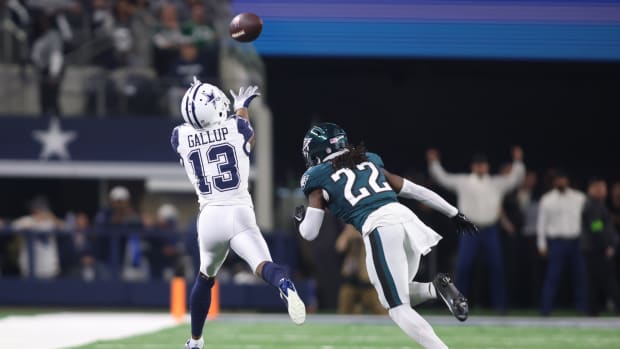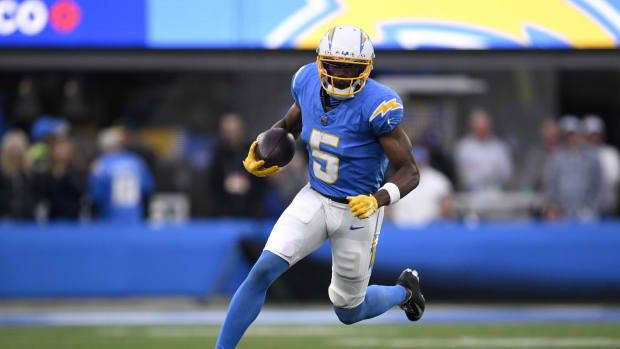Chargers HC Brandon Staley Defensive Review After Year One
About a year ago, the Chargers hired a young defensive-minded coach from the Los Angeles Rams. Brandon Staley was a hot-shot defensive coordinator who turned the Rams into the first-ranked defense in the NFL.
He had two defensive superstars in Aaron Donald and Jalen Ramsey talking him up. Staley helped safety John Johnson III and cornerback Troy Hill get paid by the Cleveland Browns during free agency.
He inherited a defense that had been the focal point of four double-digit blown leads. It had talent, though, with a returning Derwin James, Joey Bosa, and other players.
What Staley had brought was hope. The Chargers defense was a stock that reached its high point with defensive coordinator Gus Bradley in 2018 when the team had a 12-4 record, and they last made the playoffs.
In 2019, it was near the top in yards and passing yards allowed but near the middle in rushing yards per game and points allowed. The following year, they were near the bottom in almost every category.
Staley was, on paper, going to switch from Bradley's 4-3 defense to his version of a 3-4. Even though he brought back nine of Bradley's 11 starters, the only new starters were rookie cornerback Asante Samuel Jr. and linebacker Kyzir White.
"I thought we tried to fit how we played to who we had," Staley explained. "I think the challenge for us this year was that there was a lot of inconsistency in who was out there, upfront at the point of attack, and then in the secondary. I thought it made it challenging for our guys, and I thought that our guys hung in there, they hung tough. I thought that we gave ourselves a chance in these games, but certainly, to play the level of defense that I expect to play, we're going to have to continue to improve."
It was strange during the offseason that Staley didn't bring in someone that knew his defense like a Troy Hill, who might have cost a pretty penny, but wasn't as expensive as a Johnson or edge rusher Leonard Floyd.
This was also the first season of Staley as the play-caller and head coach, so he was learning as the players did in his rookie year.
"I certainly think that I improved as the season went on," Staley said. "I feel like that's a strength of mine, being able to coordinate and call the defense. I didn't feel like it took away from my ability to be the head coach at all. I felt really connected each and every week to our offensive plan, our special teams plan."
Staley didn't feel like it took away from his other responsibilities as a head coach. It takes a lot to do both, and some veteran coaches are bad at it. 2021 was about him learning how to do many of these things for the first time.
That is why he entrusted James to be his green dot signal-caller. The former all-pro safety had to play five positions this season to mask some of the deficiencies on the defense but was their leader.
"It was smooth for me," James said. "For the most part, it was smooth. We were in all of our calls; we just have to execute and focus a little more. I feel like every game, we were lined up and ready to play. Just have to focus in and, like I always say, beat the man in front of you."
Injuries did impact this defense early. They lost defensive tackle Justin Jones to a calf injury only halfway through the opening game against the Washington Football Team along with veteran cornerback Chris Harris Jr. due to a shoulder injury.
The subtraction of Jones hurt the most because he is a run-stopping tackle. He has grown in that position the last few seasons but has yet to give the Chargers a full season without sustaining an injury.
They gave up 198 rushing yards to the Cowboys, 186 rushing yards to the Chiefs, and 230 rushing yards to the Browns.
It was a "bend but don't break" defensive mentality where they gave up as many yards through the air or ground but didn't allow them to score touchdowns. It worked at the beginning when the Chargers got off to a 4-1 start.
Before their bye week, the Baltimore Ravens did a number on them, turning the hands of time. The Chargers defense let Devonta Freeman, Latavius Murray, and Le'Veon Bell rush for a combined 115 rushing yards and three touchdowns.
That is when it was evident the Chargers had a problem stopping the run.
"In the run defense, it didn't start off the way we had hoped," Staley said. "I think after the bye, we played a lot more the way that we needed to play. I felt like we made a lot of improvements."
The following three games, they gave up 142 yards against the Patriots, over 170 to the Eagles, and over 100 to the Vikings. It just happened that in some critical situations, they were able to stop the run to come out with the victory like in Philadelphia.
The game where they showed a lot of improvement was in the Sunday night matchup against the Steelers. The Chargers didn't have Linval Joseph, Jerry Tillery, or Christian Covington due to either injury or COVID. They had a healthy rotation on the defensive line that helped them hold down Najee Harris for 39 rushing yards on 12 carries.
Now, this isn't just an evaluation about the run defense, even though a lot of this team's problems came from it. Three weeks before the season ended, the defense gave up 149 rushing yards and two touchdowns to Rex Burkhead of the Houston Texans. It cost them a playoff spot.
Two weeks later, against the Raiders, they couldn't slow down Josh Jacobs, so he ran them over for 132 rushing yards and a touchdown. That cost them a spot to head to the postseason.
One of the other defensive areas that hurt the Chargers was that they couldn't get off the field on third down. According to teamrankings, they allowed their opponents to convert 49.5 percent of their third-down attempts.
"When that happened, then with our coverage players, we went through a lot of attrition in the secondary, which affected how we covered on third down in known-pass [situations]," Staley explained. "We just never had that cohesiveness of both units, the front and the coverage playing together. I think that's why you saw up and down results."
In all fairness, Staley is right there was so much up and down with the secondary due to injury. The Chargers trotted out a healthy secondary in week one but didn't have them healthy yet again until the Denver Broncos matchup.
They had injuries to cornerback Michael Davis and Samuel Jr., James missed some games, Alohi Gilman, and others.
The Chargers defense let Kansas City convert 7 for 12, Houston converted 9 for 13, and the Raiders 8 for 17. That is a big reason why they lost three out of their last four.
It felt like after their week 13 upset victory in Cincinnati and sitting at 8-5, they were headed to the postseason, but they blew their opportunity.
The defense was a big letdown after the season. It was a combination of different things. Third down, rushing defense, and some players not taking the next step as the Chargers brass had hoped.
The two biggest are former first-round picks Jerry Tillery, and linebacker Kenneth Murray. It seemed like Murray was lost no matter what position the Chargers put him on defense. They had converted him to an edge rusher when he got back from his second ankle injury, but it didn't work.
Then on the final game, Staley and his staff decided to play him crucial snaps in their most crucial game of the season.
Tillery hasn't grown into what the Chargers had thought he would by now. He is a liability in the run game and sometimes ends up thrown back into the linebackers. He is a decent pass rusher but isn't consistent enough. The Chargers still decided to play him a crucial amount of snaps.
Two players in the secondary that struggled this season were Michael Davis and Nasir Adderley. Davis was said to be a number one corner but, at times, was looked at like a liability in the secondary. He is still committing mistakes that he did in the past, and the growth isn't there.
Adderley was semi-improved over his abysmal performance in 2020 but still missed some crucial tackles, looked lost in pass coverages at times, and struggled in the games without James the secondary.
Rome wasn't built in a day, but this offseason Staley and his staff need to give a fair evaluation of these players and not because of their draft status decide to keep them. He needs to start bringing in players he believes will help them take that next level.
The Chargers aren't far off, but smart decisions need to be made, and they need players who can quickly adapt to Staley's defense.
"Last year, when I was with the Rams, it happened quickly," Staley said. "When I was in Chicago with [former Bears Defensive Coordinator] Vic [Fangio], it happened over the course of really three or four years; that was when we really hit our stride. I think it took three seasons for us to be in the top-10 [in total defense], and then, that 2018 year, we were the best defense. I just think all timelines are different."

